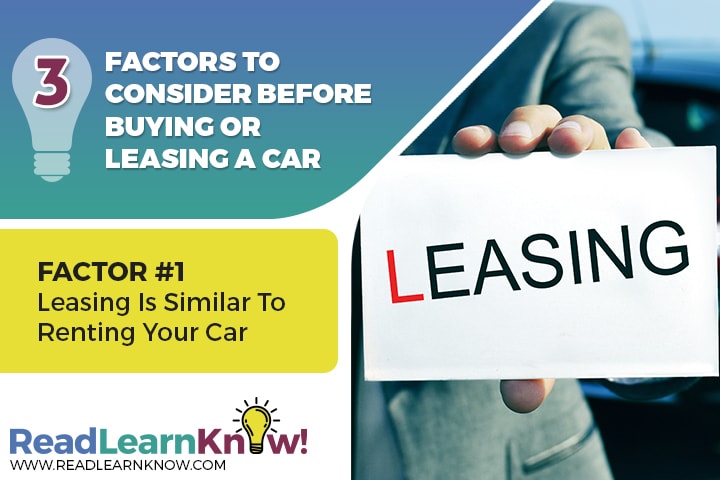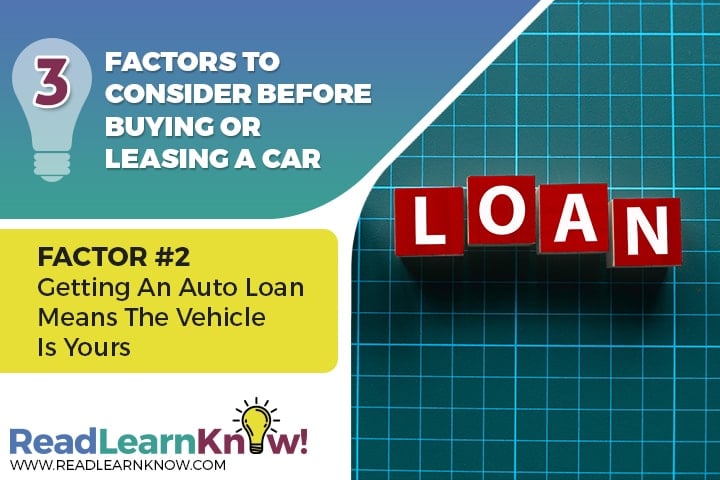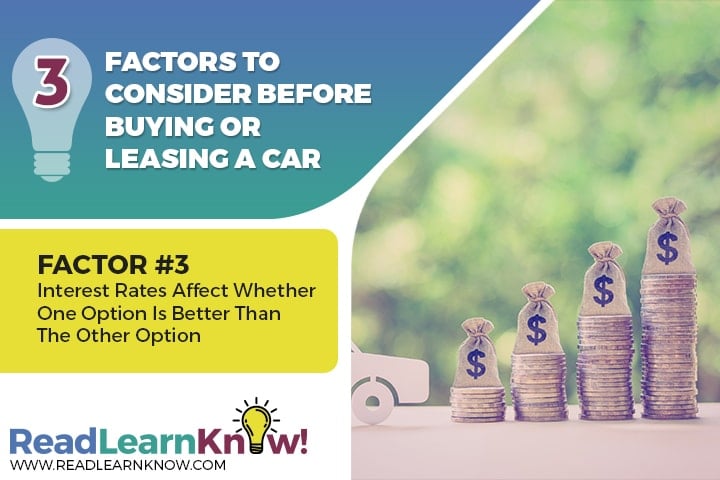3 Factors To Consider Before Buying Or Leasing A Car
Compare the opportunities for leasing or buying to your current financial situation to determine which one is best for you.
Educate Yourself

There are two basic options when you need a new vehicle: lease or buy. You can purchase a vehicle with cash or through financing or strike up a lease agreement with an auto retailer. Leasing a vehicle provides you with short-term benefits without ownership, while buying is a much more serious commitment but with greater long-term value.
To get the most out of either financing options, become familiar with the benefits and drawbacks associated with each option. Both options are viable when the right conditions are met; leasing might be best for you at some point in time, while buying might be best during another point in your life. Here are some things to consider before deciding to buy or lease a vehicle.
1 Leasing Is Similar To Renting Your Car

When you lease a vehicle, you make monthly payments on it, but you never really own it. This means that once the lease term is up, you either give the vehicle back or renew the lease. There’s never a point where you actually pay off or own the vehicle. Despite not actually owning the vehicle, you’re still responsible for all aspects of maintenance during the lease term in most circumstances. This means that new tires, oil changes, new fluids, and all general maintenance costs are your responsibility.
Because you don’t own the vehicle, you cannot make any modifications to it: no bumper stickers, aftermarket parts, window tinting, or other alterations that you might like to make on a car that you drive regularly. Leasing is ideal for individuals who want to drive a new vehicle every few years. When your lease agreement ends, you can initiate a new lease agreement for a new vehicle.
2 Getting An Auto Loan Means The Vehicle Is Yours

As long as you make the auto loan payments on time, you get to keep the vehicle. Once the vehicle is paid off completely, you don’t have to worry about making payments any longer. As the owner, you’re responsible for maintenance costs and repairs. However, you may enjoy the fact that you’re maintaining your own vehicle. You don’t have to give it back.
When you own your car, you can use it as collateral for secured lending options. When you lease a vehicle, you cannot use it as collateral. There are many restrictions about how you can use it that may limit your enjoyment of the vehicle.
3 Interest Rates Affect Whether One Option Is Better Than The Other Option

Affordability is key when it comes to choosing between leasing and owning a vehicle. The affordability of one option over the other can change based on the market and current interest rates and other incentives. When interest rates on auto loans are low in general, lease payments may not be the most attractive option. Lower interest rates combined with incentives from auto dealers often make an auto loan a better opportunity. When interest rates go up and if obtaining an auto loan is not feasible, leasing may be a better option because it provides short-term access to a car with lower monthly payments since you don’t pay based on the interest rate.

Weigh your options closely before deciding to buy or lease a vehicle. Different options provide different incentives, advantages, and disadvantages over time. Compare the opportunities for leasing or buying to your current financial situation to determine which is best for you.



